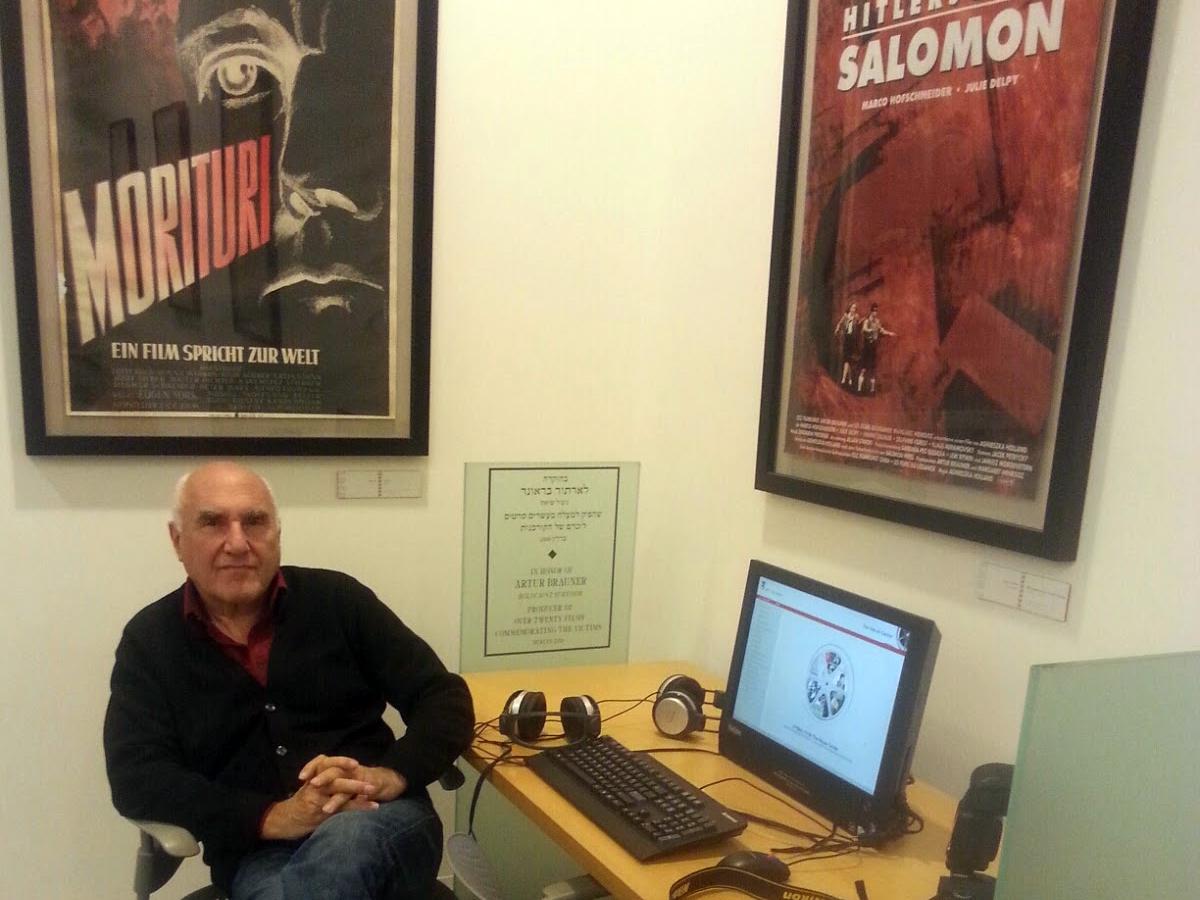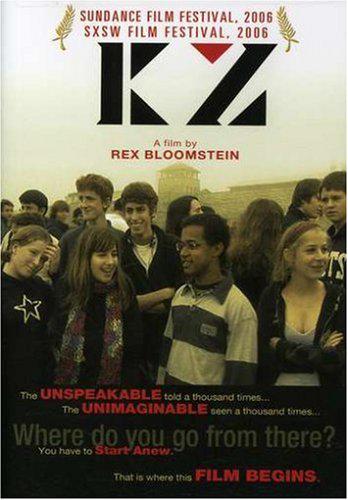



Interview with Rex Bloomstein
"Just before his execution in 1941, the famous Jewish historian Simon Dubnow told his fellow inmates in the Riga ghetto 'Yidn, shraybt un farshraybt (Jews, write and record).' My life's mission has been 'Film and Record.'"
So explained acclaimed British documentary film-maker Rex Bloomstein at a fascinating lecture yesterday in Yad Vashem's Visual Center, as he took the audience through a journey of his epic career spanning over three decades. Beginning his profession with the BBC, Bloomstein has to date created over 150 films, TV documentaries and series, including the trilogy The Longest Hatred (1989) charting the unique history of antisemitism and its manifestation in modern society; Auschwitz and the Allies (1982), investigating how much the Allies knew of the greatest death camp in history; and KZ – an award-winning film described as 'the first post-modern Holocaust documentary,' and nominee for the first Yad Vashem Chairman's Award in Holocaust-related film ten years ago.
Bloomstein has been at Yad Vashem for the past week, hard at work in the Visual Center and Archives, undertaking painstaking research for his upcoming film about the Second World War ("I can't tell you more than that at this point. I don't want to risk sabotaging the project"). Calling Yad Vashem "an institute of immense importance," Bloomstein emphasized the "vital role" played by the Visual Center – the world's largest repository of Holocaust-related films in all genres. "Film plays a crucial role in examining, exploring and confronting the Holocaust," Bloomstein stated. "Over 5,500 films have been made about the event since the Eichmann Trials in the early 1960s, and the explosion of interest in the Holocaust continues to the present day."
During his stay, Bloomstein "took advantage of the level of scholarship at Yad Vashem, conversing with a number of experts in their fields, such as Liat [Benhabib, Director of the Visual Center] and Efrat [Komisar, Head of the Footage Section in the Archives Division], who have dedicated their lives to furthering our knowledge of the Shoah."
The presentation, part of an enrichment program for Yad Vashem guides, took the audience through Bloomstein's changing perspectives and styles of Holocaust film-making over the years. From the "traditional elements" of interviews, music, footage and images, such as in The Longest Hatred and Auschwitz and the Allies, in the 1990s Bloomstein endeavored to "pare down his technique" when he and the late Robert Wistrich created "Lessons of the Holocaust" – a 60 minute video as part of an educational pack for UK secondary schools – as well as in Liberation, a documentary he produced to mark 50 years since the end of WWII. Liberation features one particular interview with a former American GI, who was extremely distressed as he recounted his first impressions on entering the Ordruf concentration camp. "I was not interested in manipulating feelings with music and images," Bloomstein explained. "I continued to try to remove as many barriers as possible between the viewer and the event."
Indeed, it is the belief in this vital component of witness testimonies that had led Bloomstein at the beginning of the previous decade to film Gathering, a seemingly haphazard and dizzying recording of the first world assembly of Holocaust survivors in Jerusalem and the media frenzy that surrounded it. "These were witnesses to a universe almost beyond belief and understanding," said Bloomstein. "They needed no narration to tell their story. I let them speak for themselves."
In 2005, Bloomstein released KZ, a feature-length film exploring the legacy of Austria’s Mauthausen concentration camp and its impact on visitors and residents today. Guides take tourists through the appalling history of the camp, while mere kilometers away the locals enjoy a few pints at the local beer garden. Noticeably absent are any survivor testimonies. "This film is about the interface between then and now," explained Bloomstein. "It is set in the landscape of the concentration camp but it is a film about today, and the task we face of continuing to find new ways to inform the next generation about what happened when the survivors will not be around to tell their story."









